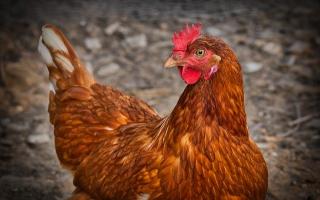Do you keep chickens, ducks or geese?
A number of Avian Influenza cases have recently been reported n the UK, one of which is in Devon. This has resulted in a National Protection Zone (AIPZ) being put in place for all poultry keepers, including those who only keep a few birds in their back yard.
All poultry keepers in England (whether they have commercial flocks or just a few birds in a backyard flock) are required by law to take a range of biosecurity precautions.
Click here for more information
If you keep poultry (including gamebirds or pet birds) or other captive birds, you must act now to reduce the risk of disease in your flock by following the relevant biosecurity measures required within the AIPZ. Your stock needs to be feed and watered under cover to prevent contamination from wild birds.
Good biosecurity improves the overall health and productivity of your flock by helping keep out poultry diseases such as avian influenza and limiting the spread of disease in an outbreak.
All bird gatherings within the AIPZ are prohibited therefore the general licence that had permitted bird gatherings has been revoked.
For more guidance please visit https://www.gov.uk/guidance/avian-influenza-bird-flu
If you find dead wild waterfowl (swans, geese or ducks) or other dead wild birds, such as gulls or birds of prey, you should report them to the Defra helpline (03459 33 55 77)
Public Health England advises that the risk to the public’s health is very low. Food Standards Agency (FSA) has said that on the basis of the current scientific evidence, avian influenzas pose a very low food safety risk for UK consumers
Avian influenza is unconnected with coronavirus (COVID-19).
Voluntary registration
You can choose to register fewer than 50 birds, or birds you keep as pets. The Animal and Plant Health Agency (APHA) encourages you to register even if you do not have to by law.
By registering,
- APHA will be able to contact you if there’s a disease outbreak (such as bird flu) in your area
- you’ll help prevent the spread of disease and protect the national poultry flock


